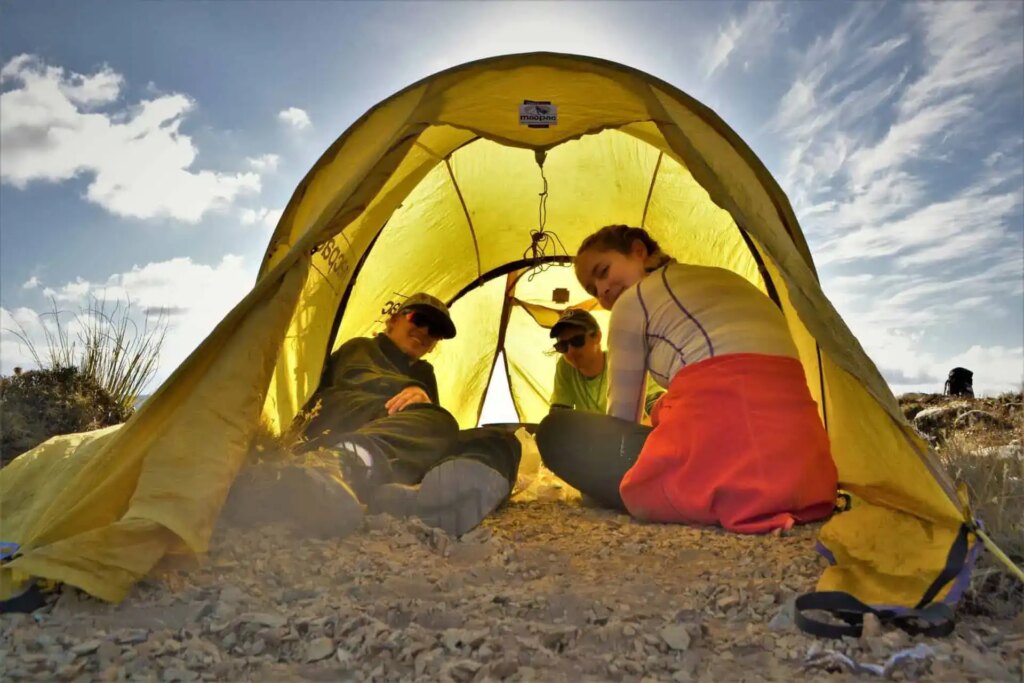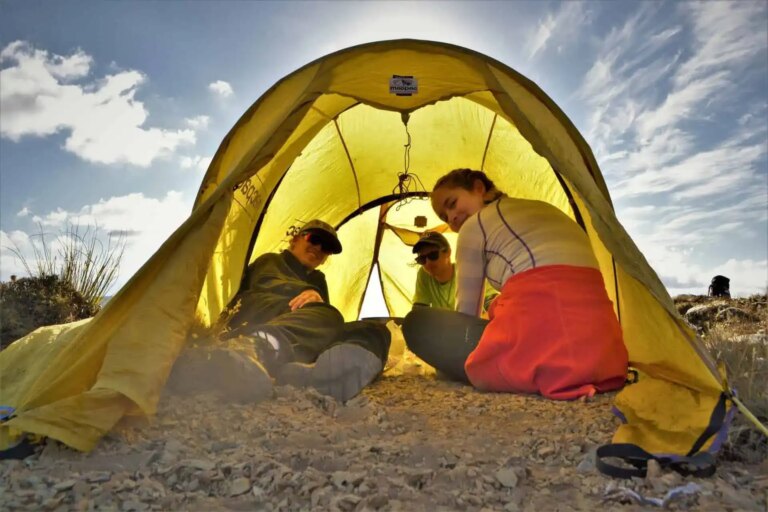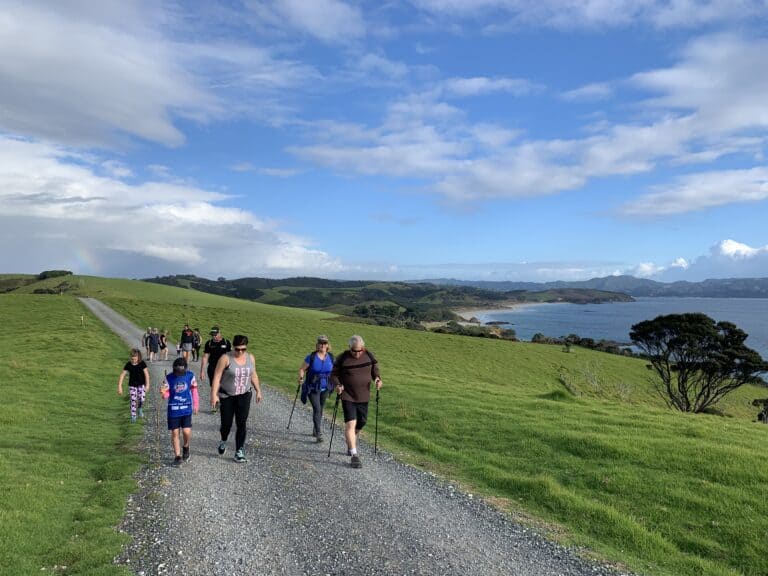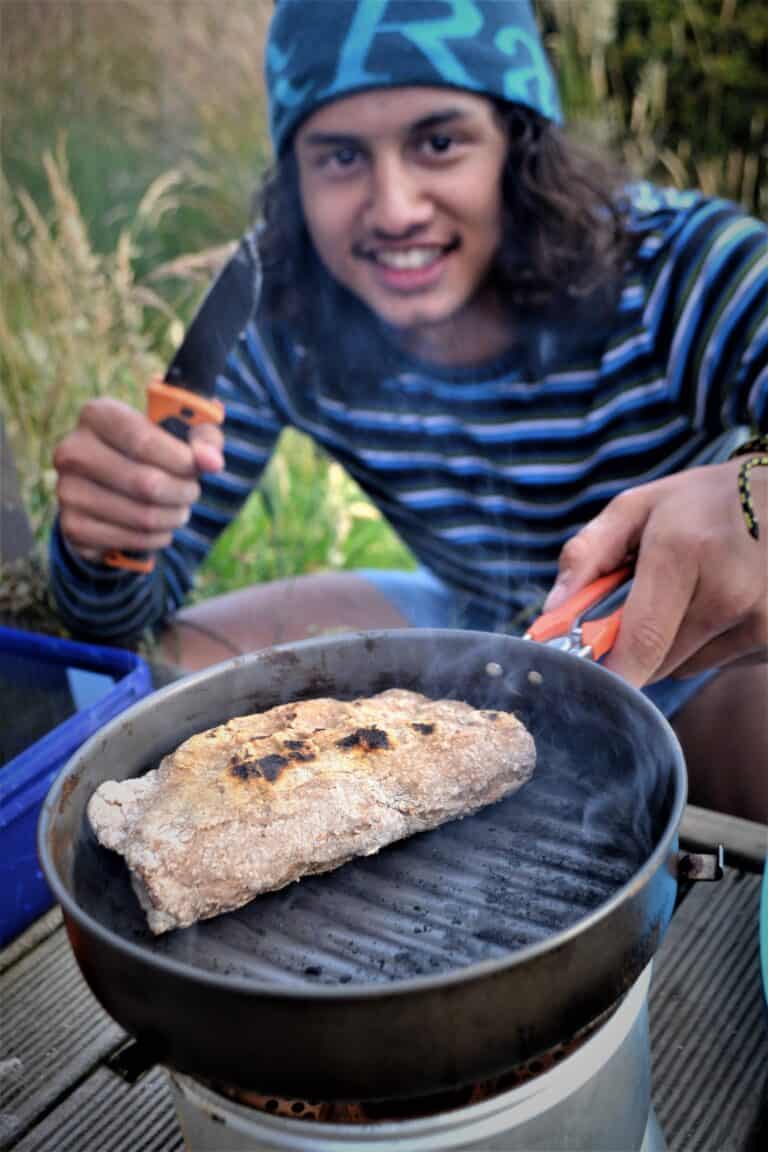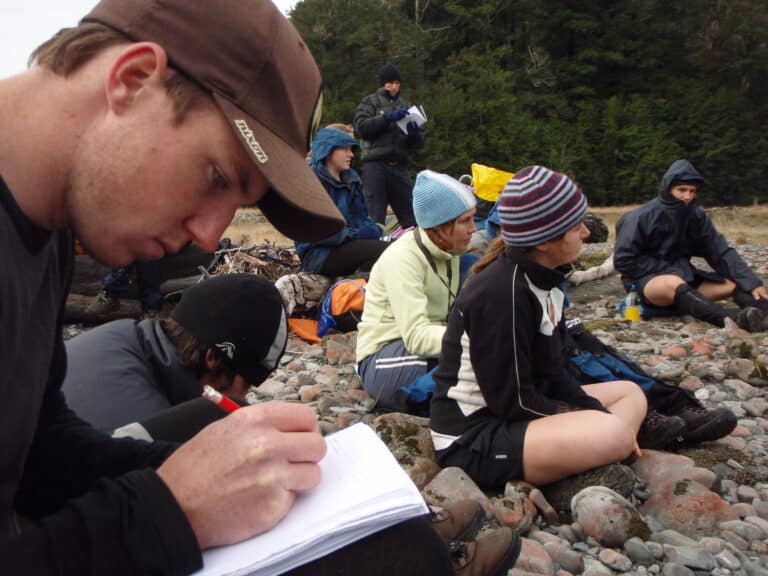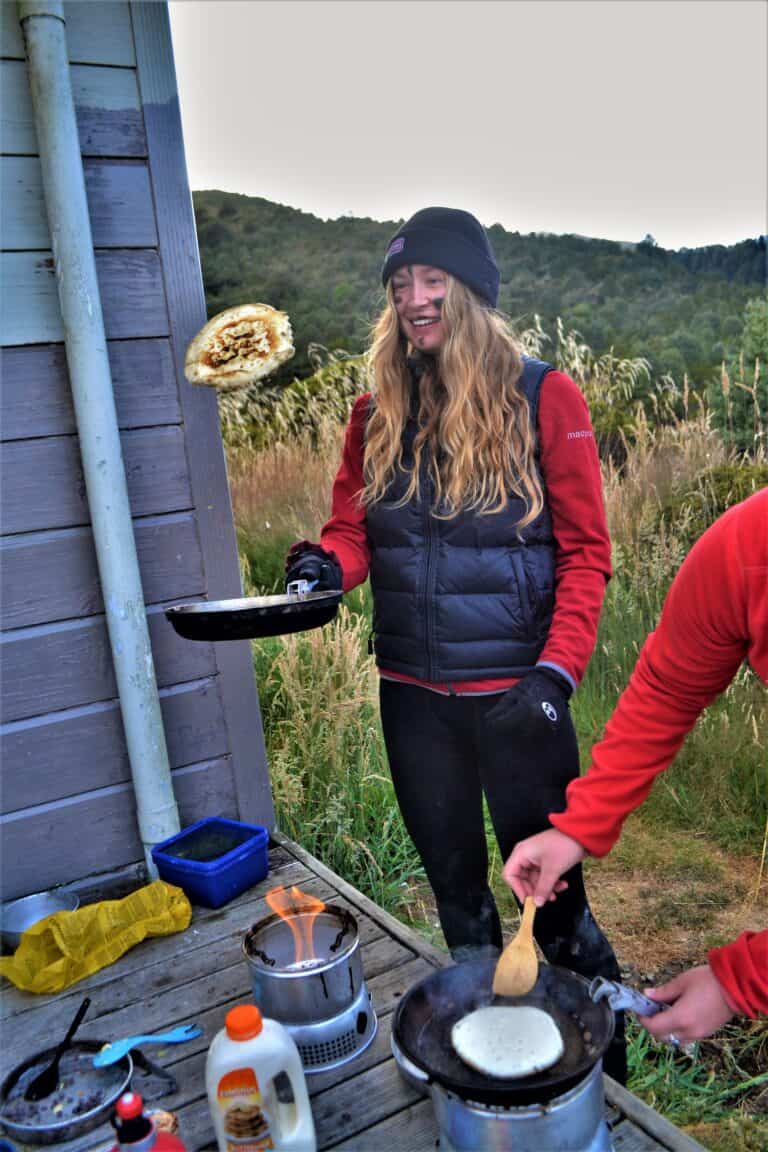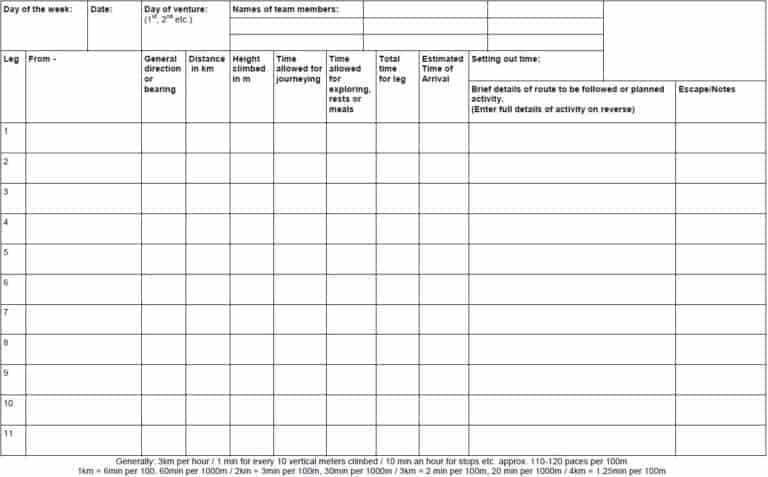- Overview
- Itinerary
- Gallery
- FAQ
- Gear list
- Dates & Pricing
DoE Bronze Practice Journey
Duration: Two days / one night
The Duke of Edinburgh's Hillary Award Bronze Practice Adventurous Journey
An introduction to adventure and discovery in the great outdoors, Bronze level is about working as a team and developing an understanding of expedition preparation and planning. The stepping-stone to the qualifying journey, the Bronze practice journey is an overnight event. An opportunity to put your skills into practice and get your gear list figured out for future journeys, this trip is a big learning curve that’s lots of fun. After packing your own backpack, you’ll walk to your destination, prepare the campsite and sleep in a tent, before packing up and tramping back the next day.
Congratulations on signing up and starting your journey with The Bronze Duke of Edinburgh Award. This is the first step towards achieving the Bronze Duke of Edinburgh Award; Adventurous Journey. Aiming to ‘encourage a spirit of adventure and discovery’, participants gain expedition preparation and planning skills as part of teamwork in the great outdoors to build solid foundations for future adventures. Social Nature Movement has designed events that cater to all levels of experience, including those that have little outdoor experience. At Bronze level participants have the opportunity to develop these skills further during the Bronze Practice Journey and Qualifying Journey.
14+ years old
Pre-requisites: Planning and Training
Dates and locations: You choose
Transport mode: Tramp, Kayak, SuP or Packrafting
Other DoE Adventurous Journeys
Occasionally, a significant expedition or exploration involving extra innovation, creativity and challenge may take place. In such circumstances, the advice and agreement of a Group’s or Unit’s Operating Authority is required to proceed. The only additional stipulation is that all participants must be aged 18 or over. It is also the case that significant Adventurous Journeys - such as scaling a Himalayan peak - would require the advice and assistance, usually at cost, of an external provider such as a reliable expedition company.
Social Nature Movement provides Adventurous Journeys by Tramping, Sea Kayaking, Stand up Paddle (SuP) boarding and Packrafting.
If tramping, journeys must be on formed tracks and those tracks should be in-line with the Department of Conservations (DoC) Walking track categories: Bronze = ‘easy’, Silver = ‘ intermediate’, Gold = ‘advanced’. ‘expert’ at SNM's and DoE's discretion.
Examples of DofE explorations and expeditions
• Exploring the natural world: glaciation, erosion, geology, coastal
studies, river valleys, plant studies, bird studies or animal studies,
insect studies
• Exploring historic land use: prehistoric man, historical periods
• Exploring human impact: visitor pressure in national parks,
pollution monitoring, surveys of numbers of walkers in remote areas
• Carrying out health surveys or health education in remote areas
• Completing a demanding journey by foot, cycle or canoe/ kayak
• Investigating group dynamics in challenging conditions
• Kayaking the entire navigable stretch of a river
• Extensive sail across an ocean
• Climbing an Alpine, Himalayan or other high mountainous peak
• Cycling from one end of a country to another or from coast to coast
How to sign off completed DoE Adventurous Journeys using ORB
Firstly access the Online Record Book (ORB), here
Then, follow the sign-off information, here
Apply for NCEA credits while doing your Duke of Edinburgh Award
BRONZE AWARD - NZQA Unit Standards (US) Level 1
• Wellbeing – 3 credits (496, v.10)
• Generic CV Building – 2 credits (504, v.8)
• Be interviewed for an informal, one to one, face to face interview – 2 credits (1293, v.7)
• Communicating as part of a team with a routine task – 2 credits (3503, v.6)
• Creating a Presentation – 3 credits (5946, v.8)
Check out our booking tab, click the book now button or fill an enquiry here
Duration: Two days / one night
Itineraries
Environmental care
The Environmental Care Code (DOC),
Personal hygiene,
Purification of drinking water, including against giardia.
Leadership
Personal responsibility to self and others,
Leadership styles – authoritarian, functional, situational, shared,
Skills required and responsibilities.
Trip planning
Trip planning components,
Considerations just before leaving,
Post-trip considerations,
Planning an overnight trip,
Safety Management and Expedition forms.
Clothing
Types and uses of clothing,
The properties of materials, eg, flammability,
The layering principle,
Foot wear.
Equipment
Types of equipment and uses – eg, packs, sleeping bag, tents, cookers,
Packing for day and overnight trips,
Constructing a personal survival kit,
Looking after and cleaning gear,
Knowledge of: Mountain Safety radio, cell phones.
Stoves and fuels
Use of common stoves used on weekend trips and the safe handling of their fuel,
Correct use of one type of stove.
Food
Types of food – carbohydrates, proteins, fats,
Planning breakfast, lunch and dinner meals in relation to cooking requirements and weight issues,
Importance of snacks and water,
Packaging to reduce rubbish and protect against pests,
Cooking simple meals using camping stoves.
Campcraft
Campsite selection criteria,
Tent placement, pitching, striking,
No trace camping,
Siting of areas for cooking, ablutions, sanitation,
Fire precautions,
Hut etiquette.
Map reading
What a map is and types,
Folding a map,
Map series, name and number,
Marginal information – scale; true, magnetic and grid north; conventional signs; etc.,
Relief shown by contours, colours, hill shading, trig stations, spot heights,
Recognition of slopes, spurs, cols, bush, scrub, etc.,
Direction of streams,
Scale of map,
Contours,
Methods of expressing scale,
Distances – how to measure them; effect of hills,
Describing an intended route from a map,
6-figure grid references,
Orientating a map using ground features
Compass use
The structure and care of a compass,
Magnetic north,
Magnetic variation,
Orientating (setting) a map using a compass.
Route finding
Land forms and natural features,
Walking on formed tracks,
Moving over rough terrain,
Track markers,
Moving using natural senses and features only,
Location awareness – “knowing where you are”,
Reducing the chances of getting lost
Water safety
Care near rivers and seashores,
Planning to avoid crossing rivers
Survival / loss of route
Making a survival kit,
What to do when route lost (staying alive in comfort),
Recognising and using natural shelters eg, rock overhangs, logs,
Helping searchers.
Outdoor first aid
Personal & party first aid kits,
Cleaning and treatment of grazes and cuts,
Simple dressings,
Stopping bleeding by direct pressure,
Treatment of blisters, stings, burns,
Recognition and treatment of sprains and strains,
Recognition and stabilisation of fractures,
Recognition and treatment of shock,
Prevention, recognition and treatment of hypothermia.
Explorations
Observation, survey and recording techniques applicable to final venture,
Use of related equipment.
Usually close and local as we only have two days and one night therefore less transportation is better. Regional parks are a good start.
Yes! It is becoming a popular option. There are pro's and con's to both, but combining them means a longer immersion in nature, half the amount of logistics and you get it over and done with in one go.
SNM staff carry cellphones and emergency communication devices where it is often (but not always) possible to connect.
It is a combination of instructor and student. The instructor will teach you as much as they can to set you up for independent succes and autonomy come your qualifying journey.
SNM offers tramping, sea kayaking, stand up paddle boarding and packrafting.
We select the best staff for the job based on their skills, knolwedge and experiences. They will be an SNM staff member or we will bring in support from equally competent contractors. Sometimes we also bring in (semi)celebrity guests!
Clothing and Equipment list for the Duke of Edinburgh Award
Clothing
- Wind and Waterproof Jacket
- Wind and Waterproof Pants (Autumn/Winter only)
- Thin merino shirt / thermal (polypropylene) shirt x 2
- Fleece jumper (x1 Summer, x2 Autumn)
- Alternative insulation jumper x1 (wool, down, synthetic) (add this if Winter)
- Thermal bottom leggings (polypropylene),
- Shorts
- Pants
- Swimwear
- Socks
- Sunhat
- Warm beanie
- Neck warmer / scarf
- Warm gloves
Equipment
- Camp shoes (jandals / crocs)
- Closed-toe footwear (trail runners / boots)
- Sunglasses
- Toiletries
- Personal medication
- Water bottle (1L+)
- Head torch
- Sleeping bag
- Sleeping bag liner (not critical)
- Sleeping mat (can be hired $15/day)
- Cooker and fuel (can be hired $10/day)
- Tent (can be hired $20/day)
- Matches/lighter
- Cutlery and crockery
- Watch (not critical)
- Knife / multi tool / swiss army knife
- Walking poles (not critical)
- Day pack / mission bag
- Waterproof pack liner (can be a large black rubbish bag)
- Pack rain cover (not critical)
- Backpack (50-75L) to put all of the above in
